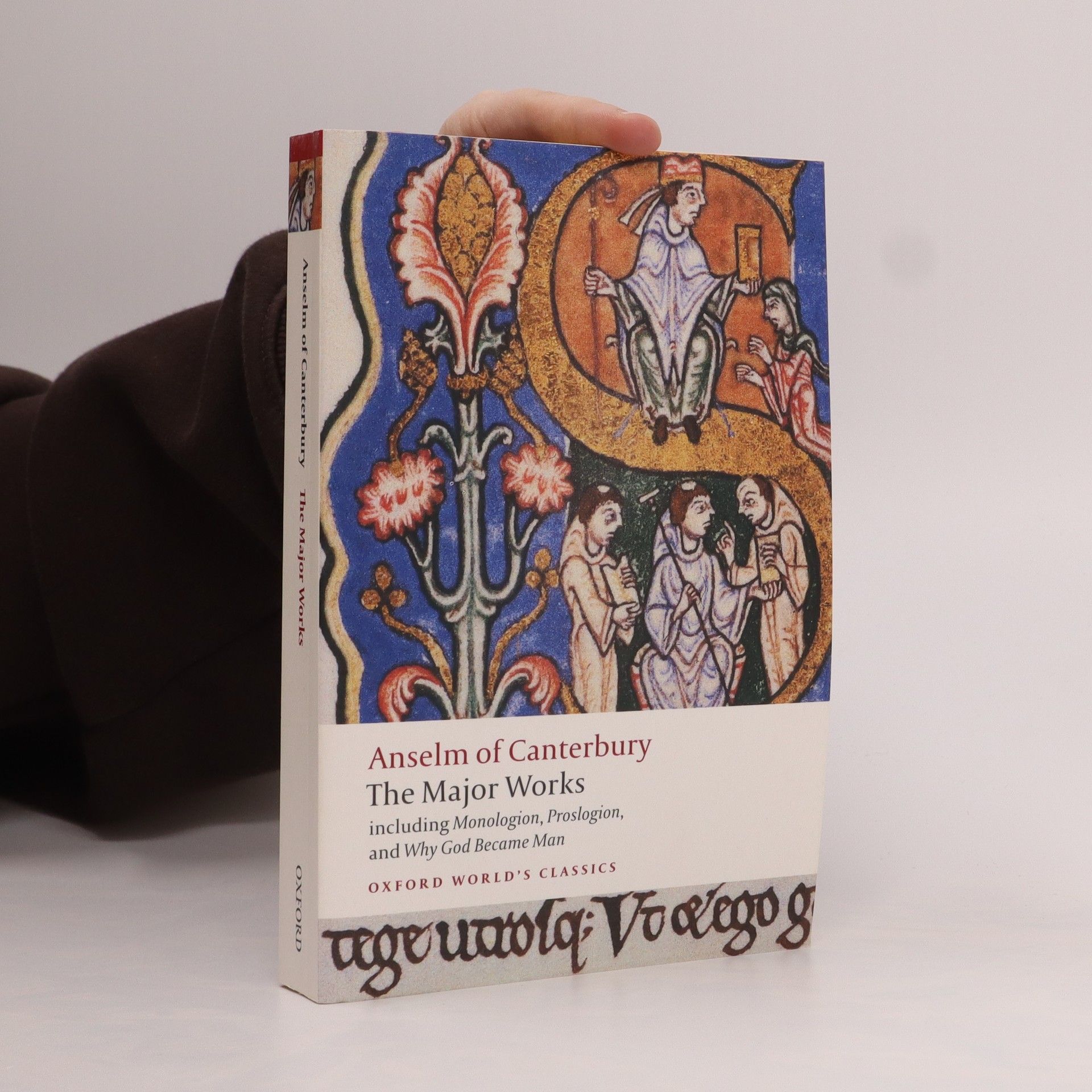Anselm of Canterbury: The Major Works
- 513 pages
- 18 hours of reading
Originally published: Oxford; New York: Oxford University Press, 1998.
Saint Anselm of Canterbury was a pivotal figure in medieval theology and philosophy, renowned as the founder of scholasticism. His work profoundly influenced Western thought, particularly his arguments for the existence of God and his theories on atonement. Anselm was not only a leading intellectual but also a devoted churchman, whose life was marked by conflicts between church and state. His ideas continue to resonate, shaping theological and philosophical discourse.







Originally published: Oxford; New York: Oxford University Press, 1998.
The translations by Williams are noted for their meticulous fidelity and accuracy, striking a balance between being true to the original texts and maintaining a lively, graceful style. This approach ensures that the essence and nuances of the source material are preserved while still being engaging for readers.
Featuring classical and medieval texts from the high Middle Ages, this collection serves as a companion to the Christendom: Defense of the Faith course within the Old Western Culture curriculum. It highlights significant works that explore the themes of faith and reason, providing insight into the intellectual landscape of the period.
Mit Untersuchungen von Franciscus Salesius Schmitt
Das ›Monologion‹ handelt von Gott, seinem Dasein, seinem Wesen und seinen Personen. Es ist die erste eigentliche Theodizee. Seine Kühnheit besteht in dem Versuch, nur auf Grund reiner Vernunftüberlegung zu argumentieren. Die Vielheit der aufgefundenen Beweise veranlasst Anselm dann, nach einem einzigen Argument zu suchen, das er im ›Proslogion‹ entfaltet. Diese berühmteste Schrift Anselms enthält den ontologischen Gottesbeweis. Mit ihm entfachte der »Vater der Scholastik« eine Diskussion, die von Thomas bis Hegel und weiter reicht. Der Dialog ›De veritate‹ ist die erste Monographie dieses Titels überhaupt. Anselms Bestimmung der Wahrheit als »die mit der Vernunft allein erfaßbare Rechtheit« lässt die Einheit des Logischen, Ontologischen und Ethischen erkennen, den Quell, aus dem dieses Denken schöpft.
Kann die Existenz Gottes bewiesen werden? Anselm von Canterbury, einer der bedeutendsten Denker des frühen Mittelalters, führt seinen Beweis mit dem Argument, dass Gott „etwas ist, über das nichts Größeres gedacht werden kann“. Dieser nachgerade raffiniert zu nennende „ontologische“ Gottesbeweis hat Philosophen bis Kant und Hegel immer wieder beschäftigt.
Anselm von Canterbury erläutert in "Warum Gott Mensch geworden" die Satisfaktionslehre, nach der der Tod Jesu notwendig war, um die Ehrverletzung Gottes durch den Sündenfall zu sühnen. Nur Gott konnte dieses Opfer bringen. Das Werk entstand zwischen 1094 und 1098 und gilt als bedeutender Beitrag zur Scholastik.
Die Kontroverse zwischen Anselm von Canterbury und Gaunilo von Marmoutiers. Lat. /Dt.